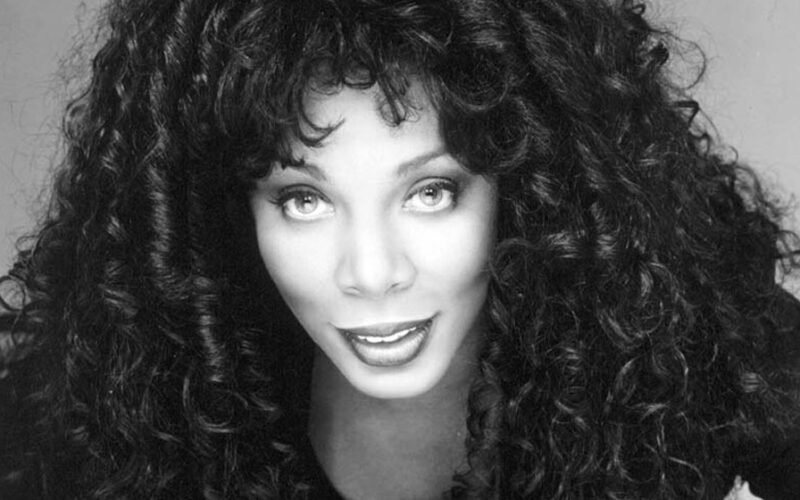Helmuth Sommer isn’t a household name, but his impact on music—especially during the disco era—is worth remembering. Most people know him as the first husband of Donna Summer, but that barely scratches the surface. He was a skilled arranger and musician who played a quiet yet key role in shaping one of the most exciting periods in popular music history.
This is the story of Helmuth Sommer’s life, career, and the part he played behind the scenes.
Early music journey
Helmuth Sommer was born on July 5, 1911, in Austria. His love for music began early. As a child, he explored different instruments and learned quickly. That natural ability eventually turned into a lifelong career.
By the time he reached adulthood, Helmuth was already part of Europe’s thriving music scene. He worked mostly behind the curtains, arranging music across classical and modern genres. His work stood out for its detail and depth. Though not flashy, it was effective and praised by those who knew music.
In the 1960s and early 1970s, Helmuth gained steady recognition in the European music world. He built a strong reputation as someone who could bring life to musical projects with his arrangements. He worked across studios in Germany, Austria, and beyond, often contributing without taking center stage.
Meeting Donna Summer
Helmuth Sommer met LaDonna Adrian Gaines—later known worldwide as Donna Summer—during her early performing years in Germany. At that time, Donna was active in theater and still discovering her voice in music.
Their meeting marked the start of both a personal and creative partnership. They married in 1973. That same year, the couple welcomed a daughter, Natalia Pia Melanie Sommer, known as Mimi.
Their time together as a couple was short, and they divorced in 1976. But during those formative years, Helmuth played an important role in Donna’s development as an artist. He introduced her to studio work and helped her understand the inner workings of the music industry.
How Donna got her name
One of Helmuth’s most lasting contributions may be tied to Donna’s stage name. When she began her recording career, she needed a name that would be memorable and marketable. The decision was made to use “Summer,” a version of “Sommer,” Helmuth’s last name.
This small but powerful change helped shape her public identity. It’s how Donna Summer became known to the world. Helmuth’s influence, even through something as simple as a name, played a lasting role in music history.
Work behind the scenes
Unlike Donna, Helmuth didn’t crave the spotlight. He stayed focused on his work as a musician and arranger. His talents were often hidden behind the success of others, but that didn’t make them any less valuable.
Helmuth had a gift for creating unique musical arrangements. He could mix different instruments and styles to bring a track to life. This skill became especially useful in the 1970s, as disco began to rise.
Disco music relies heavily on rhythm, layering, and energy. Helmuth knew how to craft these elements into a smooth sound. His background in both classical and modern genres gave him an edge. He wasn’t just following trends—he was helping shape them.
Post-divorce life
After his marriage to Donna Summer ended, Helmuth stepped away from public view. He focused more on his personal life and maintained a close bond with his daughter, Mimi. While he didn’t chase fame, he kept working in music quietly.
There is little public information about his later career. But it’s clear that Helmuth never stopped being involved with music. His work remained steady, and he continued to share his talents with those who needed them.
He also stayed loosely connected to Donna’s life. Even though they were no longer married, their shared history and daughter meant that he remained in the background, watching her grow into a superstar.
Helmuth’s quiet legacy
Helmuth Sommer never headlined a world tour or won big music awards. But his influence still counts. People often forget that every successful artist has people behind them. Helmuth was one of those people for Donna Summer.
He played a role in setting up her career. He gave her support, stability, and industry insight in her early years. And through his own musical work, he helped shape the disco sound that made her famous.
His name may not appear on magazine covers, but those in the know understand his value. Music is full of quiet contributors like Helmuth, whose efforts often go unnoticed by the public but not by their peers.
Musical style and influence
Helmuth’s style was rooted in structure. He understood how to blend harmony with rhythm. This skill made his arrangements crisp and professional. His knowledge of both classical and contemporary music helped him stay relevant across decades.
During the rise of disco, he adapted well. He added layers, groove, and a polished feel that helped songs stand out. While we may not have a long list of famous tracks credited directly to him, his fingerprint is on many works from that time.
And his early support for Donna Summer, especially in arranging and studio guidance, gave her a platform to grow. When she found producers like Giorgio Moroder, she was already prepared, in part thanks to Helmuth’s guidance.
FAQs about Helmuth Sommer
Who was Helmuth Sommer?
He was an Austrian musician and arranger, known mostly as the first husband of Donna Summer. He played an important behind-the-scenes role during the early disco era.
Was Helmuth Sommer famous?
He wasn’t a public celebrity, but he was respected in the European music world for his work as an arranger and musician.
Did Helmuth help Donna Summer?
Yes. He supported her during the start of her career and played a role in shaping her public name and early experiences in music.
What happened after their divorce?
Helmuth chose a private life. He stayed close to their daughter, Mimi, and continued his work in music without public attention.
Is the name ‘Summer’ from Helmuth?
Yes. “Summer” was a simplified version of his last name “Sommer.” Donna adopted it as her stage name.
What was Helmuth’s musical specialty?
He was best known for arranging music. He worked across classical and modern genres and adapted well to the disco sound.
Did he continue working in music after Donna’s fame?
Yes, but in a private and low-key way. He didn’t seek the spotlight but continued arranging and supporting music projects.










